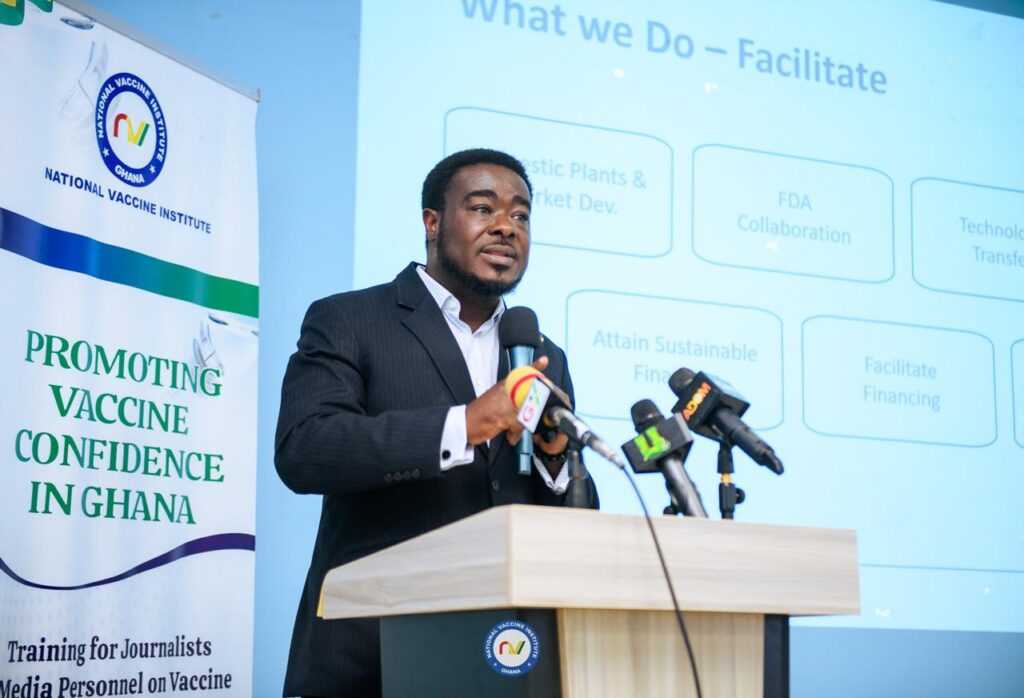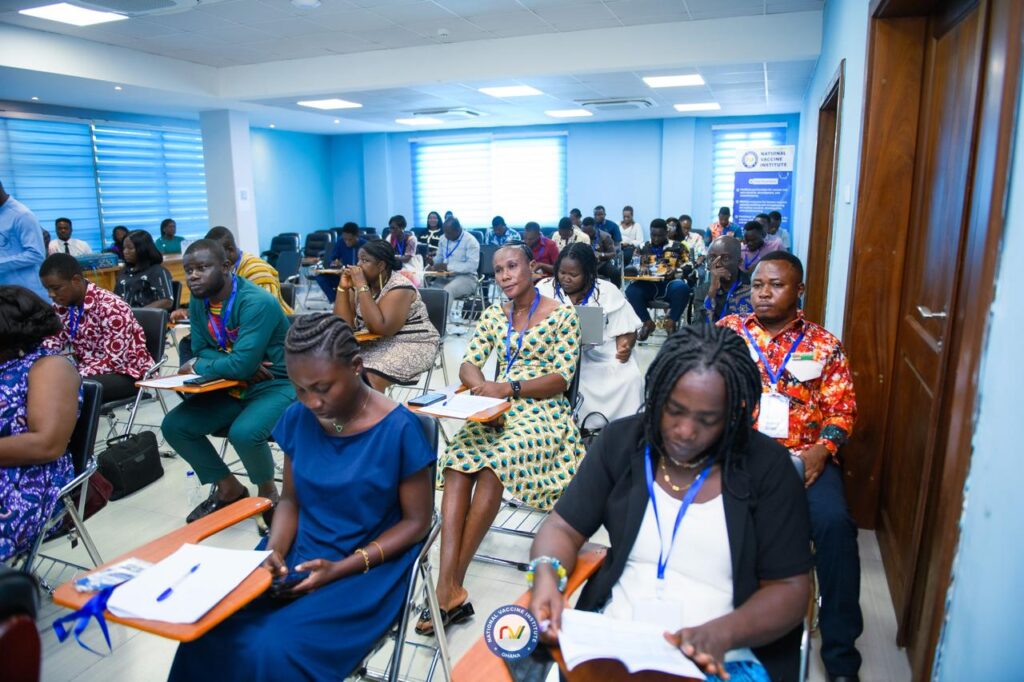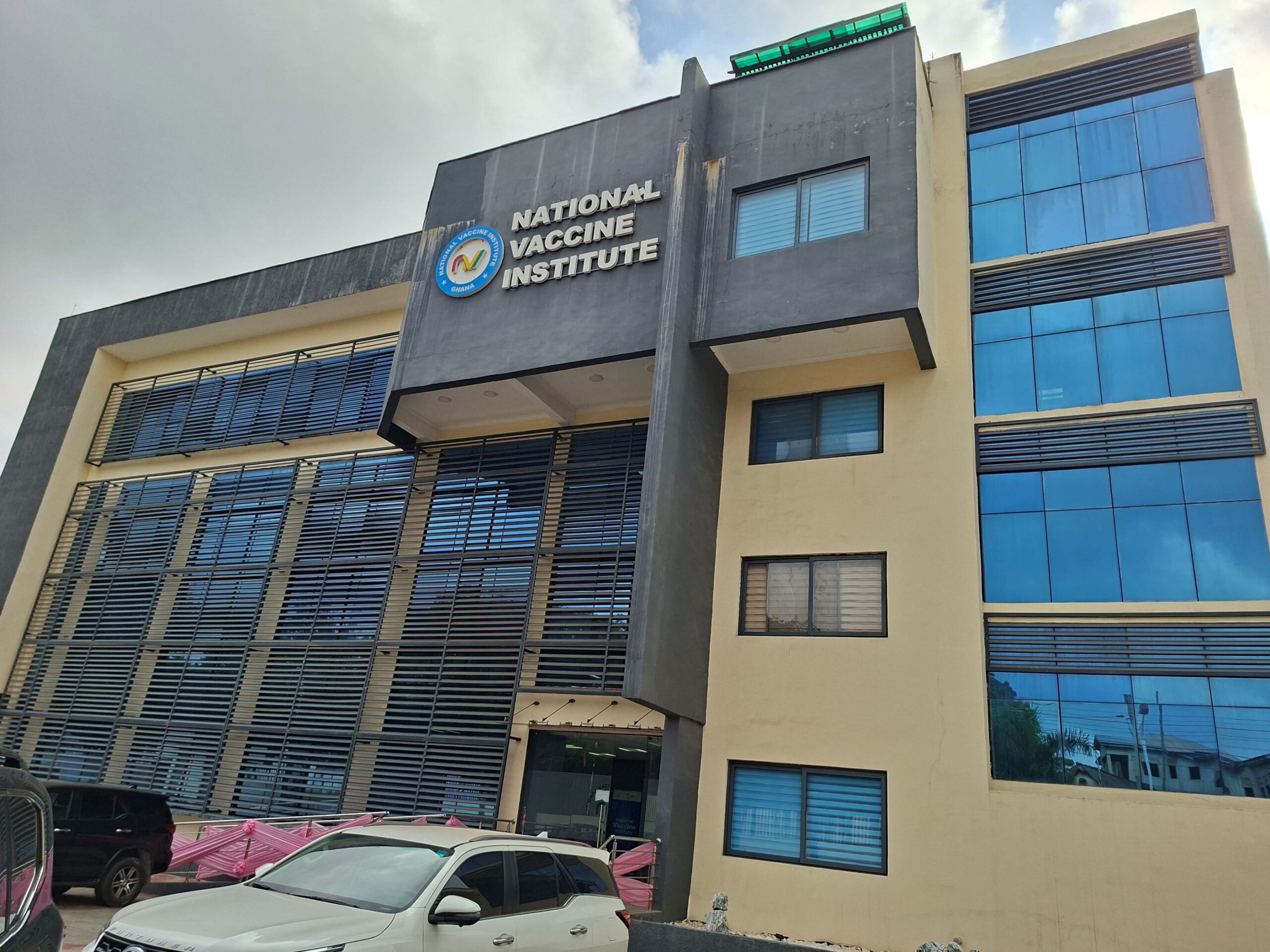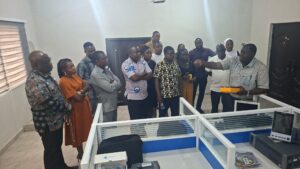By Jones Anlimah
Ghana is accelerating efforts to achieve vaccine self-sufficiency as the National Vaccine Institute (NVI) continues to coordinate research, development, and manufacturing of vaccines in collaboration with local and international partners.
Speaking during a workshop on vaccine communication and advocacy, NVI Chief Executive Officer, Dr. Sodzi Sodzi-Tettey, highlighted key milestones in Ghana’s vaccine production journey, noting that less than one percent of vaccines used in Africa are currently manufactured on the continent.
“In June 2025, we met with global stakeholders, including Bill Gates, to discuss vaccine production in Africa. While the world has sufficient manufacturing capacity, African countries face challenges such as vaccine nationalism, as was evident during the COVID-19 pandemic,” Dr. Tettey said.
The African Union has set a target that by 2040, 60 percent of vaccines used in Africa should be manufactured on the continent. Ghana, through the NVI, is laying the groundwork to meet these ambitious goals.

Public-Private Partnerships and Manufacturing
Dr. Tettey explained that the NVI has adopted a public-private partnership model to advance vaccine manufacturing. Two pharmaceutical companies, Atlantic Life Sciences and DEK Vaccines Limited, have been selected to collaborate with the Institute to produce existing vaccines and support research for future outbreaks.
He emphasized the need for robust market access, noting that Ghana’s local market alone is too small to sustain large-scale production. “One plant under construction has the capacity to manufacture about 600 million doses per year, far more than Ghana requires. NVI is facilitating access to the wider African market to ensure sustainability,” he said.
Research and Capacity Building
The NVI is working with universities and research institutions across Ghana, including Noguchi Memorial Institute for Medical Research, KCCR in Kumasi, UHAS, University of Cape Coast, and the Centre for Plant Medicine Research in Mampong, to strengthen research and development capabilities.
Dr. Tettey underscored the importance of aligning research with manufacturing priorities. Through partnerships with European institutions via the PharmaVax program, the NVI has allocated almost €1.7 million to fund innovative vaccine research projects in collaboration with local manufacturers.
Regulation, Technology Transfer, and Market Mobilization
Collaboration with the Food and Drugs Authority (FDA) is central to ensuring that vaccines produced locally meet international standards. Dr. Tettey highlighted ongoing technology transfer initiatives with international partners, including PT Biopharma of Indonesia, India, and China, to equip Ghanaian manufacturers with the necessary technical expertise.
“Atlantic Life Sciences has received market authorization from the FDA for its anti-snake venom serum, which can be manufactured within a month once a government contract is secured,” he said. The NVI is also facilitating bilateral agreements with neighboring countries and leveraging the African Union’s pooled procurement mechanism to ensure that vaccines produced locally reach broader African markets.
Funding and Government Support

Financial sustainability remains a key challenge. The NVI has secured $113 million from AfriXim Bank to support local manufacturers, alongside $50 million in seed funding from President John Mahama. This funding is intended to strengthen manufacturing, regulation, and the training of scientists and technicians.
Dr. Tettey highlighted government’s commitment to prioritize locally manufactured vaccines in procurement and to amending legislation if necessary to guarantee a market for Ghanaian products.
Future Outlook
As Ghana prepares to graduate from Gavi support by 2030, the NVI is implementing a biomanufacturing training consortium to build local expertise and reduce reliance on external resources. Partnerships with international organizations, such as the International Vaccine Institute based in South Korea, are also being formalized to support research and intellectual property collaborations.
Dr. Tettey stressed that alongside the milestones in research, development, and manufacturing, building public confidence in locally produced vaccines remains critical. Ensuring the safety, quality, and efficacy of these vaccines is essential to protecting the health of Ghanaians and achieving the goals of Ghana’s first vaccine production program.
The National Vaccine Institute’s comprehensive approach positions Ghana as a potential hub for vaccine research, development, and manufacturing in West Africa, reinforcing the country’s commitment to health sovereignty and regional collaboration.





